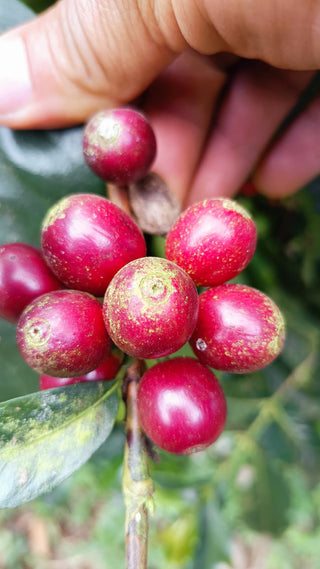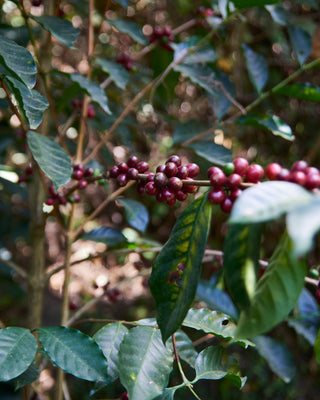


"Cap Bon" coffee is from Central America.
Central American coffees are generally quite cherry and cocoa-flavored, so if you like this profile, this type of coffee is for you.
We will change the coffee approximately every 3 months, but the general profile will remain the same in all our Cap Bon coffees.

Lots of panela with burnt sugar and mellow jammy plum and dried lime flavors. Mild tangy acidity and sugary sweetness.


"Cap Bon" coffee is from Central America.
Central American coffees are generally quite cherry and cocoa-flavored, so if you like this profile, this type of coffee is for you.
We will change the coffee approximately every 3 months, but the general profile will remain the same in all our Cap Bon coffees.

Lots of panela with burnt sugar and mellow jammy plum and dried lime flavors. Mild tangy acidity and sugary sweetness.

Farm
Finca La Gloria is a 34.5-hectare farm that was founded in 2018. It is run under Los Naranjos Coffee, a group founded by high school friends who operate several farms in the Apaneca region of El Salvador. This farm seeks to produce the best coffees under this name.
It is located in an area with one of the best views in El Salvador. Situated just behind the Ilamatepec Volcano, its soil is rich in volcanic matter ideal for growing healthy crops. Their coffee is 100% shade-grown with different species of shade trees native to the mountainous area.
Harvest typically runs from February through June. Managers train the coffee pickers on how to cut the coffee cherry with the optimal degree of maturity for a suitable raw material. Before harvesting, areas of the farm are sampled through Brix measurements to best determine ideal ripeness. Picked coffee then heads to the mill where the following classifications are made ahead of processing:
From 0 to 20 degrees brix classification A = Processes: Full Washed or Semi-Washed
From 21 to 30 degrees brix AA or AAA classification = Processes: Honey, Natural, or Experimental
Los Naranjos Coffee carries out 4 quality control cuppings, 2 cuppings before being offered and 2 subsequent cuppings after the coffee has rested. All cuppings look to measure consistency or improvement in quality.
Experimental processes such as Anaerobic Natural stand out for their control, avoiding phenolic or alcoholic notes. Most importantly they result in very clean cups.

Microlot
Microlots from El Salvador are sourced from different groups of smallholder producers and some established estates located throughout the country.
Cafe Imports has one employee, Alberto Reyes, that lives full time in El Salvador and works directly with the small-holder producers predominantly in the Chalatenango region throughout the year offering sensory and agronomy support. The farms here are small on average (5–15 manzanas, or roughly 3.5–10.5 hectares) and many producers grow classic Salvadoran varieties such as Pacas and Pacamara as well as Bourbon.

Process: Anaerobic Natural
Natural-process specialty coffees are something of an experiment in El Salvador, but they are increasing in popularity. The coffee is generally picked ripe and sorted for quality, then placed on raised beds or patios to dry for a month or more.
It is important to note this coffee was intentionally processed utilizing anaerobic fermentation. In general, placing freshly-harvested cherries inside a sealed container or bag of some sort for a period of time will create a flavor impact. We find those anaerobically-fermented coffees often exhibit an increase in the intensity of fruit and acidity and a slight increase in the body. Nonetheless, the anaerobic fermentation process has a distinct impact on the outcome of the flavor profile.

Variety: Gesha
There are two primary genetic strains of Gesha (1931; 1956) but both are derivative from Ethiopian landrace varieties collected by the British in the 1930s.

Country: EL Salvador
Known as “the land of volcanoes,” El Salvador is the smallest Central American country (roughly the same size as New Jersey), but its reputation among specialty-coffee-growing regions has grown larger-than-life, especially since the early 2000s. While coffee was planted and cultivated here mostly for domestic consumption starting in the mid-1700s, it became a stable and significant crop over the next 100 years, notably increasing in national importance during the late 1800s, when the country’s indigo exports were threatened by the development and widespread marketability of synthetic dyes.
As coffee grew in economic importance, different government programs designed to increase production through land, tax, and military-exemption incentives created a small but strong network of wealthy landowners who gained control over the coffee market, in addition to the individual smallholders who were growing coffee as part of their subsistence farming and would sell their cherry to the larger estates or mills.
By the late 1970s, coffee exports accounted for 50 percent of the GDP, but socioeconomic and political unrest hurled the country into civil war for more than a decade, and in the 1980s various land-redistribution projects and agrarian reform disjointed the coffee industry and caused the market to decline. Lacking the resources to continue farming, producers abandoned their coffee farms, and many were left overgrown and unharvested for years until a peace agreement was reached in the 1990s.
It is often said that the Cup of Excellence competition, which came to El Salvador in 2003, was the beginning of the new “wave” of interest in Salvadoran coffee, shining the first light on some of the special varieties the small country grows.


